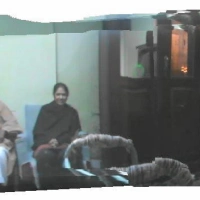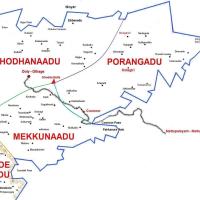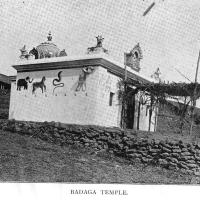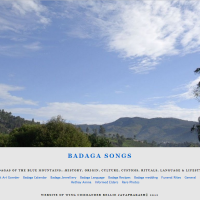One of the unique traditions of Badagas is the naming of their Villages – called hatti (individual village) or Ooru (can be an individual village or a cluster of villages of a ‘commune’).
Generally, the names are based on a topographical feature. Prof.Paul Hockings has elaborated this aspect in his book ‘Ancient Hindu Refugees – Badaga Social History 1550-1975’.
Some of these interesting names and their meanings as mainly given in the above book. Hope to cover all the 380 odd hattis.
1. Aanayhatti – Aanay + Hatti – Elephant + Village
2. Achinakal – Achuna + Kallu – Achu [well proportioned like ‘printed’] + Stone
3. Adikaratti – Athikari + Hatti – Adhigari clan + Village
4. Akasu – Akasu -sky , very high hill
5. Anehatti – Anay + Hatti – Water channel- Bund + Village
6. Aramanehatti – Aranmanay + Hatti – Palace + Village
7. Arebennu – Aray + Bennu – Large flat rock + Upper back [shoulder]
8. Arehatti – Aray + Hatti – Large rock + Village
9. Arekombe – Aray + Kombay – Large rock + Kuruma hamlet [earlier]
10. Asaganathore – Asagana + Thoray – Washerman’s + Riverside










 Mookuthi
Mookuthi  Chinna
Chinna 






 ==
==




![Seemae [See'may] & Morae [Mo'ray] (relationship)](https://i0.wp.com/badaga.wordpress.com/files/2008/11/nakku-betta1.jpg?resize=200%2C200)







































